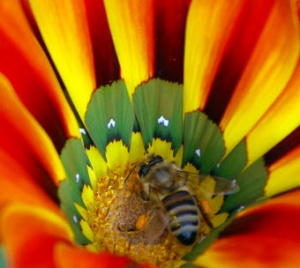OER4Schools/Photo story: Difference between revisions
No edit summary |
No edit summary |
||
| Line 1: | Line 1: | ||
<noinclude>{{Rinfo | <noinclude> | ||
{{OER4S_asset}} | |||
</noinclude><noinclude>{{Rinfo | |||
|type= Lesson idea | |type= Lesson idea | ||
|attribution= | |attribution= | ||
Revision as of 15:54, 30 November 2012
| Resource details | |
| Title | Telling a story with photos |
| Topic | |
| Teaching approach | |
| Learning Objectives | |
| Format / structure | |
| Subject | |
| Age of students / grade | |
| Table of contents | |
| Additional Resources/material needed | |
| Useful information | |
| Related ORBIT Wiki Resources |
|
| Other (e.g. time frame) | |
| Files and resources to view and download | |
| Acknowledgement | |
| License | |
Digital technology allows you to create (as well as re-use) images.
A Digital Photo Story combines different media. It is a story made up of images, accompanied with written text, voice, motions, transitions and music, resulting in a rich product that can be used to express, share, describe, present, … to tell a story. Photo Story Telling can be used to:
- Present: Learners can use a Photo Story to report on a trip, a visit or a meeting, to describe a phenomenon, a person or an event. Students can describe for example a normal day in their life, or the place where they live with a story of pictures and narrated with voice.
- Introduce: Teachers and learners can make an overall introduction of an object or a word by using images.
- Explain: Teachers and learners can use a sequence of pictures to explain a phenomenon or a certain process.
- Tell a story: Teachers and learners can tell the story of a character or an event by pictures.
- Create a learning situation: Teachers can engage learners in a visual story and encourage learners to solve presented problems.
Teachers can use Photo Story Telling at different stages of a lesson:
- To introduce new concepts, ideas and background information, as a warm-up to engage learners in the learning process, to illustrate a problem.
- For learners to attain new knowledge: Learners can be asked to develop a Digital Photo Story to describe what they have learnt, synthesising their knowledge, etc...
- To review and evaluate learning outcomes: The teacher can produce a Digital Photo Story as a visual summary of main concepts of the lesson, to revise and conclude a lesson.
Digital Photo Story Telling can be used in different subjects, for example:
- History: To tell the story of a people in history, achievements or events.
- Geography: To describe local environmental problems, to report on a fieldtrip, to illustrate a study on natural and social phenomena.
- Literature: To describe and summarise a story (characters, context, climax, actions...).
- Civil education: To tell stories of contemporary people in the society.
- Science: To record an experiment; to present the growth process of a tree, report a fieldtrip, create stories about animals under water and on land.
Another way to use photos is to prepare a set of digital photos for classroom use by students on computers, such as for classification tasks, as in the Eness lesson on vertebrates that we watched earlier. You can remind yourself of the video here.
The above material derives from the VVOB ICT for Active Teaching and Learning toolkit which is available on the server for reading in your own time if you are interested. See pages 57-63 for information on how to create a Photo Story and more detailed examples of use. The VVOB toolkit is also available online:
- PDF file: http://www.vvob.be/vietnam/?q=toolkit-ict-atl
- Website: http://www.ict4atl.org

